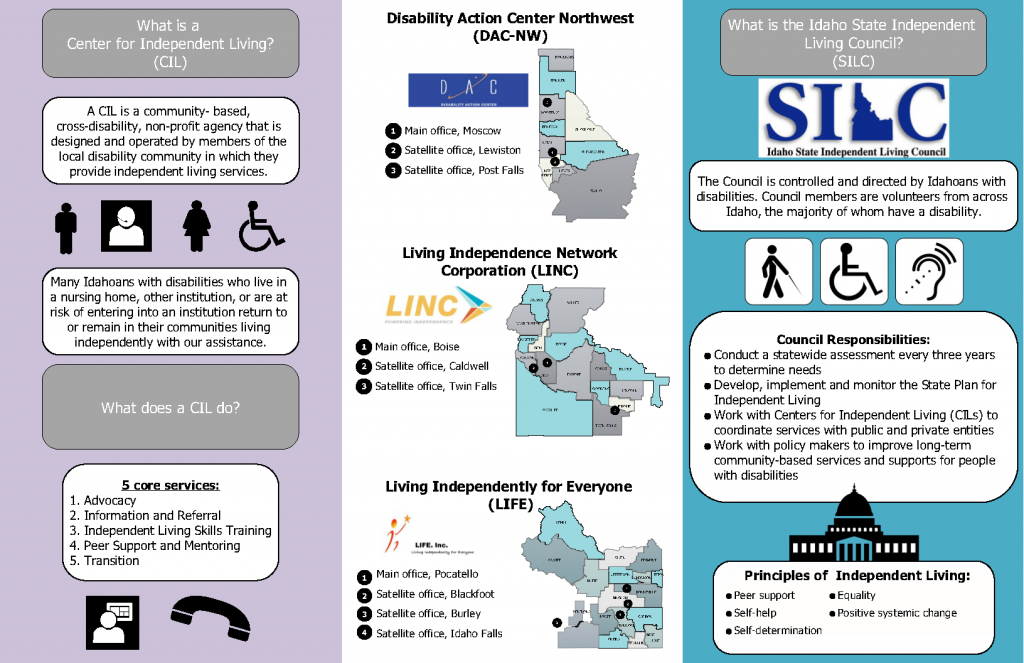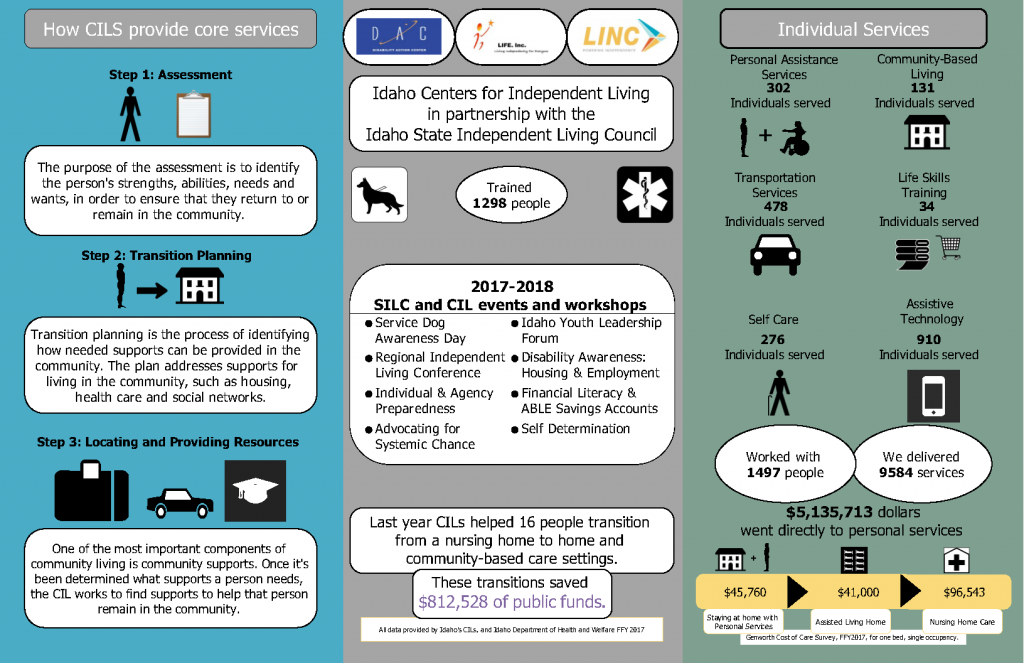News
PARA CREAR UNA GUÍA DE RECURSOS DE SALUD MENTAL-ST. LUKE’S AND MEXICAN CONSULATE PARTNER
PARA CREAR UNA GUÍA DE RECURSOS DE SALUD MENTAL
“Hay ayuda a tu alcance” aborda las crecientes preocupaciones de salud mental en Idaho
BOISE, ID – La guía bilingüe (inglés-español) de recursos informativos sobre salud mental “Hay ayuda a tu alcance” está disponible a partir de hoy en el Treasure Valley de Idaho. “Hay ayuda a tu alcance” es una guía creada mediante la colaboración de St. Luke’s Health System y el Consulado de México en Boise. Esta guía informativa está dirigida a las personas que viven en el Treasure Valley, incluye recursos locales y nacionales de salud mental y brinda educación sobre las enfermedades mentales. Además de las listas de recursos locales, proporciona información útil sobre los factores de riesgo de estas enfermedades, señales de advertencia y recursos para la prevención del suicidio, así como apoyo para la salud mental y emocional. “Hay ayuda a tu alcance” se inspira en la guía “Get Help (Obtenga ayuda)” creada por el Centro de St. Luke’s para la Salud de la Comunidad/St. Luke’s Center for Community Health del área de Wood River Valley. (continúa en comunicado de prensa adjunto)
ST. LUKE’S AND MEXICAN CONSULATE PARTNER TO CREATE MENTAL HEALTH RESOUCE GUIDE
“Help is Here” addresses the growing mental health concerns across Idaho
BOISE, ID – A bilingual (English-Spanish) informational mental health resource guide is now available in the Treasure Valley. “Help is Here” is a guide created through a partnership between St. Luke’s Health System and the Mexican Consulate of Boise. Intended for those in the Treasure Valley, the informational guide includes local and national mental health resources and provides education to support the understanding of mental illness. In addition to lists of local resources, the guide also provides information about mental illness risk factors, warning signs and suicide prevention, as well as emotional and mental health support. The guide was modeled after the “Get Help” guide created for the St. Luke’s Center for Community Health for the Wood River Valley area.
CDC Expands Eligibility for COVID-19 Booster Shots to All Adults
Today, CDC Director Rochelle P. Walensky, M.D., M.P.H., endorsed the CDC Advisory Committee on Immunization Practices’ (ACIP) expanded recommendations for booster shots to include all adults ages 18 years and older who received a Pfizer-BioNTech or Moderna vaccine at least six months after their second dose.
The Food and Drug Administration’s (FDA) authorization and CDC’s recommendation for use are critical next steps forward in our country’s booster program – a program which will help provide increased protection against COVID-19 disease and death.
CDC continues to encourage the 47 million adults who are not yet vaccinated to get vaccinated as soon as possible to protect themselves, their families, loved ones and communities. We also strongly encourage those who were already eligible – older populations and individuals with underlying medical conditions – to get boosted before the holidays.
Anyone can find available vaccines near them at vaccines.gov and can consult their health care provider or local pharmacist if they have questions about vaccines or boosters.
The following is attributable to Dr. Walensky:
“After critical scientific evaluation, today’s unanimous decision carefully considered the current state of the pandemic, the latest vaccine effectiveness data over time, and review of safety data from people who have already received a COVID-19 primary vaccine series and booster. Booster shots have demonstrated the ability to safely increase people’s protection against infection and severe outcomes and are an important public health tool to strengthen our defenses against the virus as we enter the winter holidays. Based on the compelling evidence, all adults over 18 should now have equitable access to a COVID-19 booster dose.”
###
U.S. DEPARTMENT OF HEALTH AND HUMAN SERVICES
CDC works 24/7 protecting America’s health, safety and security. Whether disease start at home or abroad, are curable or preventable, chronic or acute, or from human activity or deliberate attack, CDC responds to America’s most pressing health threats. CDC is headquartered in Atlanta and has experts located throughout the United States and the world.
MORE INFORMATION
The CDC’s final recommendations for boosters are available at CDC Covid Booster and Health and Welfare.
COVID-19 VACCINE FAQ
If you have any question regarding the COVID-19 vaccine, please consult this FAQ. Click here to be re-directed.
2021 Legislative Session Safety Concerns
The Idaho Council on Developmental Disabilities officials call on Legislative Leaders to put safety controls in place to allow citizens with developmental disabilities to engage in legislative process.
A health care industry gets by ‘on a shoe string.’ Advocates say new state aid won’t help much.
SILC Council Member Shiloh Blackburn was interviewed regarding her experiences with home health care.
The article can be read at the Post Register.
How to find accessible voting in Idaho
What is voting? Voting is a way for adult citizens to make decisions regarding an important issue or to pick someone for an office.
Who can vote? You can vote if: you are a United States Citizen, 18 years or older, registered to vote, and living in Idaho and the county you reside in at least 30 days before the election.
How do I register to vote? You can register to vote on Election Day at your polling place. You can also register online or by filling out a voter registration form with your county clerk. Follow the instructions for completing and submitting the form.
Where can I vote? Everyone who can vote may vote at a polling place on Election Day. You can find your polling place by calling your county clerk or going online. In Idaho, you can also vote by mail by requesting an absentee ballot, For more information, go to or call your county clerk.
Who can help me vote? Anyone you trust! You have the right to have someone help you fill out and submit your ballot. You can also call your county clerk, your local or state independent living center, or DisAbility Rights Idaho at 208-336-5353 or email info@disabilityrightsidaho.org if you need help registering to vote or voting.
Are election officials required to effectively communicate with voters with disabilities?YES! The ADA requires election officials conducting any election at the federal, state, or local level to provide communication with voters with disabilities that is as effective as that provided to others. To ensure that voters with disabilities can fully participate in the election process, officials must provide appropriate auxiliary aids and services at each state of the voting process
Find out more at the link below
Request for Information: COVID-19 and Congregate Settings
NCIL, the National Council on Independent Living needs help!
We need your help. The COVID-19 pandemic has hit our community hard, and especially people in congregate settings. These settings include places like psychiatric hospitals, intermediate care facilities, nursing facilities, developmental centers, group homes, and others. Many of our people are still trapped in these settings even as the pandemic has highlighted their dangers.
As we fight to keep everyone safe, we are also preparing for increased infections in the coming months. We are considering filing a complaint about how the rights of many disabled people in congregate settings are being violated right now. We need to know what has – and has not – been working in these settings around the country.
If you live in a congregate setting, or if someone close to you (like a family member or friend) does, we want to hear from you.
You can share this information with us using any of the methods below:
- Use the online form
- Email comments@ncil.org
- Call 202-864-4249 and leave a voicemail on our dedicated comment line
Please provide at least one way to contact you so we can follow up if we need more information. Some of the information we receive will be used if we move forward with the complaint. We will not share your name or contact information without your permission.
We request that you please share this information with us by Friday, October 16. Thank you.
Survey Question Examples: We are especially interested in answers to the following questions. You can answer any or all of these questions. These are just examples of the type of information we are looking for. If you have information to share with us that is not included in these questions, please do.
Since the start of the pandemic:
- Did you want to get out of a congregate setting – and could not? (Or, did someone you know want to get out of a congregate setting – and could not?)
- Did anyone offer you services to meet your needs in the community instead? (Or, did anyone offer the person you know services to meet their needs in the community instead?)
- Did anyone tell you that a family member could get paid to provide you support in their home? (Or, did anyone tell you that you could take your relative home and get paid to provide the support they need?)
- Did you think about moving into or out of a congregate setting (from another facility or the community), but couldn’t get information on the safety of the setting? Or did you want to move a family member, but were not able to get this information? This can include things like the number of infections or access to PPE.
We also want to hear about the day-to-day experiences in congregate settings. For example:
Has the setting taken steps to protect residents and staff from COVID infection? For example:
- Are they making sure staff wear masks, gowns, and gloves?
- Are they testing for COVID weekly?
- Are they practicing social distancing?
- Are they taking other steps?
Do you have concerns about the facility NOT taking steps to protect you or the person you know? For example:
- Are they having the same staff work with residents who have COVID and residents who do not?
- Is there limited use of protective equipment (like gloves and masks)?
- Are they admitting new residents without testing for COVID, or without quarantining for 14 days?
- Are they continuing to have residents eat or do other activities in large groups?
- Are there other concerns?
Have you had access to an Ombudsperson or Protection & Advocacy person to talk about concerns or grievances?
Idaho’s 2020 Virtual Independent Living Conference
Registration is now open!
LINC Idaho has opened registration for Idaho’s Independent Living Conference for 2020. This year the event will be virtual and registration is free!
Go here to find out more about this conference and how to register.
Creating an Accessible Political Campaign
Whether you’re running for office or volunteering for a political candidate or social issue, campaign materials, events, and activities need to be accessible to people with disabilities. Check out this resource that includes tips for reaching voters with disabilities, and how to make your campaign accessible to everyone!
 Official Government Website
Official Government Website



